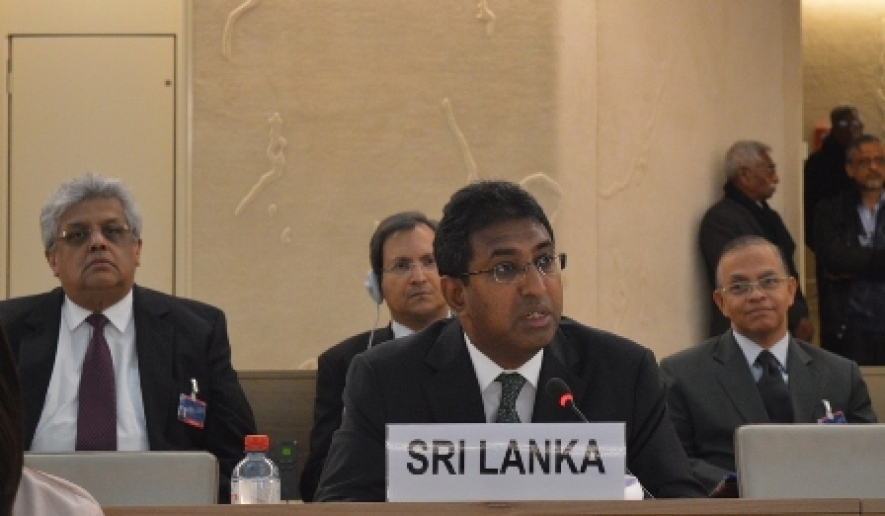As this Council is aware, the Minister of Foreign Affairs of Sri Lanka, Hon. Mangala Samaraweera addressed this Council on the 28th of February on behalf of the Government, and outlined what we have achieved in terms of Resolution 30/1 and beyond, what still remains to be done, and the challenges that we face in the process.
Most importantly, he stressed that Sri Lanka’s resolve to the reconciliation process has not diminished. He said – with the help of all our citizens in all walks of life, our friends and partners in the international community, and Sri Lankans overseas; with patience, understanding, and constant and consistent effort and perseverance; we strongly believe that we can make the reconciliation process a success, and establish a progressive and united society, working in harmony to take our nation towards new heights of socio-economic development.
I take this opportunity today, to reiterate our resolve and reaffirm our commitment to the reconciliation process and commitments articulated in Resolution 30/1.
As the Council is aware, Sri Lanka has been working with the United States and the other main co-sponsors of 30/1, UK, Macedonia, and Montenegro, on a Resolution for a two-year extension of the timeline for fulfilment of commitments made in Resolution 30/1. We are pleased to announce that Sri Lanka will be co-sponsoring this Resolution, and we thank the Council, the UN, and our bilateral partners for their support to strengthen reconciliation in Sri Lanka, and for this extension of the timeline.
We are especially appreciative that the Council, in recognition of the firm commitment of the National Unity Government to the process of reconciliation, accountability and human rights in Sri Lanka, endorsed the proposals made by the Government in 2015, for credible ‘Government of Sri Lanka-led’ processes embodied in Resolution 30/1.
Mr. President,
We work closely with the High Commissioner and his Office and we are committed to continuing this constructive and meaningful engagement for the benefit of all our people. The views, observations and recommendations of the High Commissioner are useful, as we work to strengthen, promote, and protect human rights, good governance, and the rule of law in Sri Lanka.
This Council knows that no country’s human rights record is perfect. It is always work-in-progress. The people of Sri Lanka have been through extremely difficult and painful times, and although much has been done, there is much still left to do, including strengthening our institutions and achieving economic progress. There are multiple challenges that we face. But, as a responsible and committed Government, under the leadership of President Sirisena and Prime Minister Wickremesinghe, we are determined to stay the course. We will listen to all, we will study all reports carefully, we will exchange information, share our concerns and comments, engage constructively and meaningfully with our partners, and take the necessary steps required to ensure that Sri Lanka is a nation that is prosperous, united in its diversity, upholding human rights, justice, and the rule of law.
We remain firm in our resolve to enhance the fundamental rights of all citizens as equals in a free and democratic country, where fear and intimidation have no place. We are committed to the reconciliation agenda including truth, reparations, justice and non-recurrence with a victim-centred approach, recognising the impact of conflict on all our citizens, irrespective of their communities of origin, gender, social status, age and other identities.
As we go through the complex process of establishing new mechanisms, we are considering the Report of the Consultation Task Force, and we will continue to consult with all segments of our society. We will also seek international expertise and assistance, as all countries do, when they undertake such responsibilities.
We request the support of all Council Members and Observers to help Sri Lanka succeed in this transformative and challenging agenda that we have undertaken, including economic development, that plays an important role in ensuring the success of the reconciliation agenda.
Thank you.




















